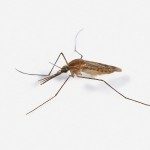Lien vers Pubmed [PMID] – 19091037
Malar. J. 2008;7 Suppl 1:S3
Speculations on the potential impact of climate change on human health frequently focus on malaria. Predictions are common that in the coming decades, tens – even hundreds – of millions more cases will occur in regions where the disease is already present, and that transmission will extend to higher latitudes and altitudes. Such predictions, sometimes supported by simple models, are persuasive because they are intuitive, but they sidestep factors that are key to the transmission and epidemiology of the disease: the ecology and behaviour of both humans and vectors, and the immunity of the human population. A holistic view of the natural history of the disease, in the context of these factors and in the precise setting where it is transmitted, is the only valid starting point for assessing the likely significance of future changes in climate.

